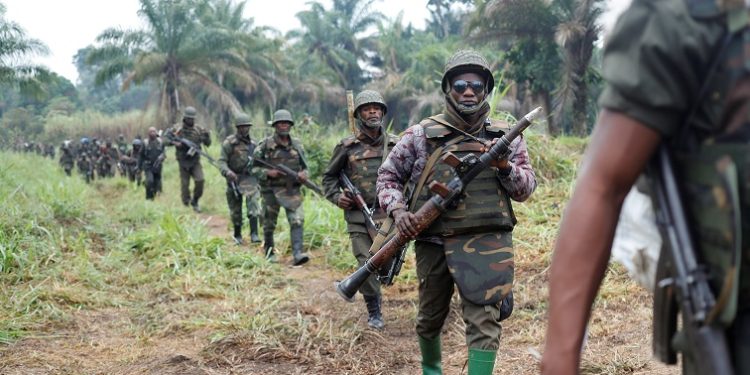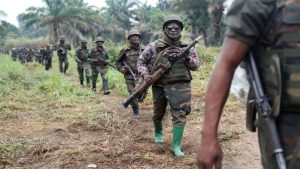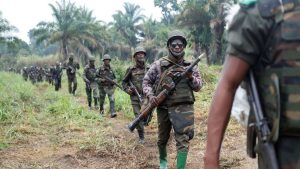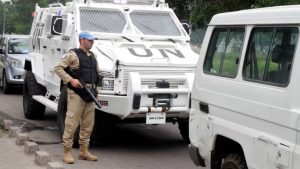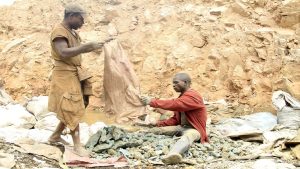While the 2023 election could make a significant contribution to the strengthening of democracy in the Democratic Republic of Congo (DRC), one of the most significant challenges they face today is insecurity.
This comes as the United Nations (UN) earlier warned that civilians continued to bear the brunt of the conflict between the country’s national army and the M23 rebel group after almost 300 people were killed in attack on the village of Kishishe in the country’s North Kivu Province.
The head of the UN’s peacekeeping mission MONUSCO warned that over the past week, the security situation in the east of the country had dramatically deteriorated.
The UN’s top official to the DRC says that since October, the M23 has resumed hostilities and extended its control over the Rutshuru territory in North Kivu, telling the council that MONUSCO continues to provide operational, logistical and tactical support to the national army.
“The reports of atrocities and other crimes committed by the M23 and other armed groups are gravely concerning. The preliminary findings of the United Nations fact-finding team established in response to allegations of human rights abuses and violations of international humanitarian law by M23 combatants in has Kishishe and Bambo, Rutshuru territory, North Kivu, has confirmed that at least 131 civilians (102 men, 17 women and 12 children) were either shot dead or killed by bladed weapons by M23 fighters. During the same period, M23 combatants raped at least 22 women (one of whom was killed after the rape). The team also confirmed the destruction of four schools and occupation of two others by M23 combatants,” says Binto Keita, Special Representative of the Secretary-General to the DRC.
Dozens forced to flee as DRC government forces clash with M23 rebels in Bweza village
She called on the Council to condemn these crimes with the utmost severity, while calling for those responsible for atrocities against civilians to be prosecuted nationally or internationally.
“The M23’s offensives have further exacerbated the ongoing humanitarian crisis. The DRC already plays host to the highest number of internally displaced persons anywhere on the African continent, due in large part to the activities of the ADF, CODECO, Zaire, Twirwaneho and Mai-Mai groups. An estimated additional 370 000 people have been uprooted and forced from their homes in the latest round of hostilities, involving the M23. The outbreak of inter-communal violence in the western provinces of Mai-Ndombe, and Kwilu, has also led to the displacement of over 50 000 people, mostly women and children,” says Keita.
Keita pointed to encouraging regional efforts, including mediation efforts led by Angola between the DRC and Rwanda which stands accused of supporting the M23 – a claim Kigali continues to reject – in addition to the Nairobi Process that seeks to directly tackle the armed groups militarily.
“It is imperative that the outcomes of these initiatives are faithfully implemented by all parties. First and foremost, the M23 must cease all hostilities and withdraw from occupied areas in accordance with the roadmap set out in the Final Communiqué of the Luanda Mini Summit. I echo former President Uhuru Kenyatta’s call on all other armed groups to lay down their weapons and adhere to the P/DDRCS. I call on all partners to support the DRC government’s efforts to operationalize the programme. Meanwhile, the East African Community Regional Force has continued to deploy in support of the political processes,” explains Keita.
Keita also told the council that MONUSCO stood ready to promote a constructive dialogue between stakeholders towards strengthening the political environment conducive to a transparent and inclusive electoral process next year.
DRC announces youth mobilisation to tackle M23 insurgency: Aimé Zonveni


